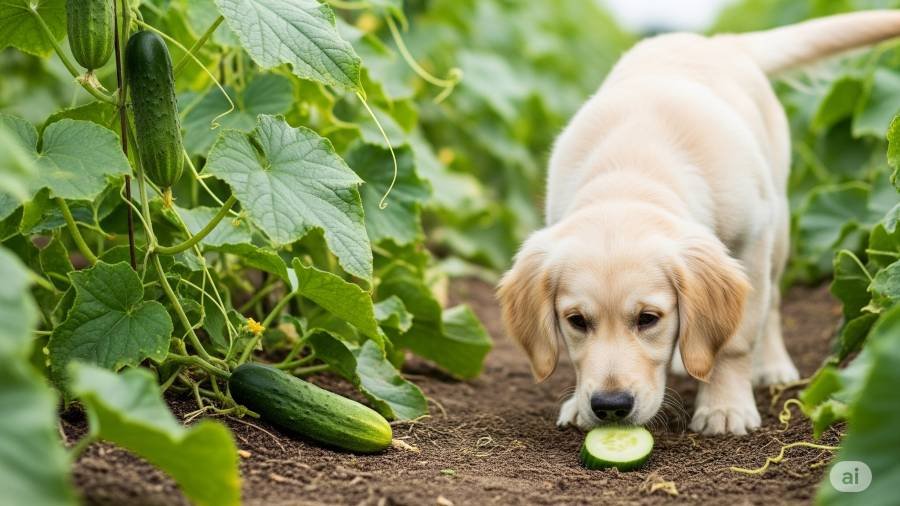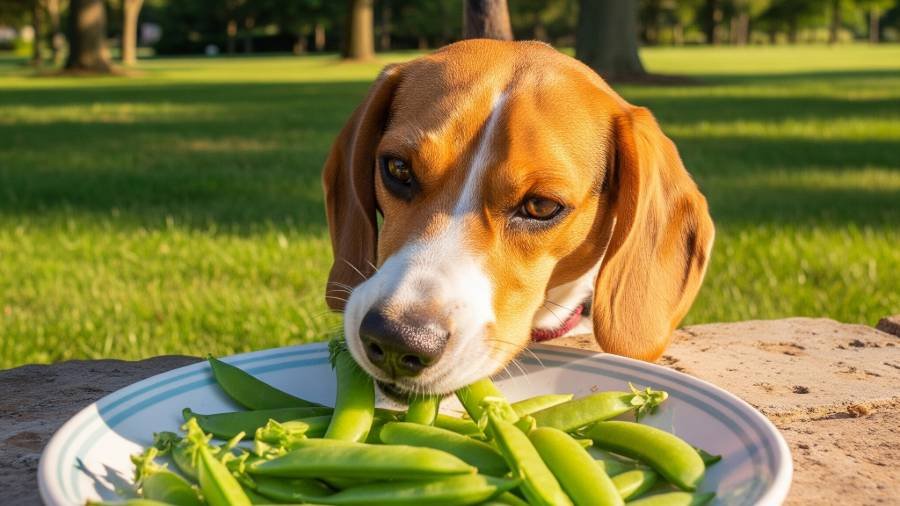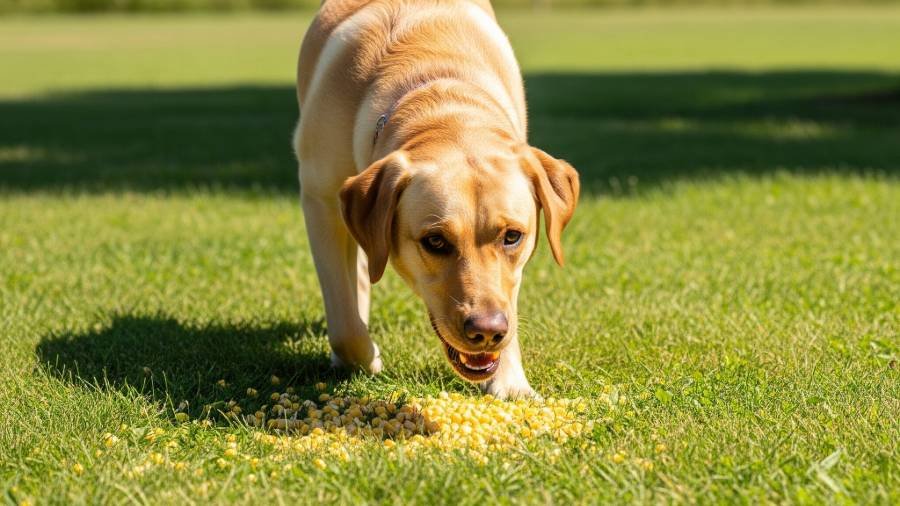Dogs can eat a variety of vegetables in moderation as healthy additions to their diet, providing essential nutrients when prepared safely and offered in small pieces.

Potential Benefits of Vegetables for Dogs
When a dog eats vegetables in controlled amounts, they offer numerous advantages that enrich a dog’s diet and support overall health:
- Rich in Vitamins and Minerals: Vegetables like carrots and spinach provide vitamins A, C, and K, plus minerals like potassium and iron, boosting the immune system and supporting vital functions.
- High Fiber and Low in Calories: Options such as green beans and zucchini are low in calories yet high in fiber, aiding digestion and helping maintain a healthy weight.
- Antioxidants: Vegetables like sweet potatoes and Brussels sprouts contain beta carotene and other antioxidants, which combat oxidative stress and may reduce inflammation.
- Hydration Support: With high water content, vegetables like cucumber and celery contribute to hydration, especially beneficial in warm weather.
- Dental Health: Crunchy vegetables, such as carrots, can help clean teeth and reduce plaque when chewed, promoting oral hygiene.
- Energy and Nutrient Balance: Vegetables like peas and sweet potatoes offer natural carbohydrates, providing a steady energy source without overloading on fats.
These benefits make vegetables a valuable component when you feed your dog a diverse range of dog foods, complementing their primary diet. For more on safe produce, explore what fruits can dogs eat, which pairs well with vegetable options.
Safe Vegetables for Dogs and Their Benefits
Here are some vegetables dogs can safely enjoy, each with specific health perks:
- Carrots: Rich in beta carotene and fiber, carrots support eye health and digestion, and their crunch aids dental care.
- Green Beans: Low-calorie and high in fiber, green beans promote weight management and digestive health, making them a versatile treat.
- Sweet Potatoes: Packed with vitamins A and C, plus fiber, sweet potatoes boost immunity and energy when cooked and mashed.
- Peas: A good source of protein, fiber, and vitamins, peas support muscle health and digestion in small amounts.
- Zucchini: Low in calories and high in water, zucchini aids hydration and weight control, especially when steamed or raw.
- Brussels Sprouts: Rich in antioxidants and fiber, Brussels sprouts enhance detoxification and gut health when served in moderation.
- Celery: High in water and low in calories, celery supports hydration and dental health with its natural crunch.
- Spinach: Loaded with iron and vitamins, spinach promotes blood health and immunity, though it should be given sparingly due to oxalates.
- Bell Peppers: High in vitamin C and low in calories, bell peppers support skin health and immunity when seeds and stems are removed.
- Pumpkin: A fiber-rich vegetable, pumpkin aids digestion and can help with diarrhea when served plain and cooked.
Risks and Dangers of Vegetables for Dogs
While many vegetables are safe, certain risks arise if not prepared or fed correctly, requiring careful attention:
- Choking Hazard: Large pieces or whole vegetables like carrots or celery can obstruct airways, especially for small dogs or puppies.
- Toxic Vegetables: Onions, garlic, and mushrooms are toxic to dogs, causing severe gastrointestinal upset or organ damage.
- High Fiber Overload: A large amount of fiber-rich vegetables like Brussels sprouts can lead to diarrhea, stomach pain, and nausea.
- Allergic Reactions: Though rare, some dogs may experience itching or digestive issues as an allergic response to certain veggies.
- Pesticide Exposure: Non-organic vegetables may contain residues, necessitating thorough washing to avoid long-term health effects.
- Oxalate Content: Vegetables like spinach or beets, high in oxalates, can contribute to bladder stones in predisposed dogs if overfed.
- Digestive Sensitivity: Sudden introduction of high-fiber veggies can upset a dog’s stomach, particularly in dogs with sensitive systems.
How to Safely Feed Vegetables to Dogs
To ensure vegetables are a safe treat, follow these guidelines when you feed your dog vegetables:
- Wash Thoroughly: Rinse all vegetables under water to remove dirt, pesticides, or chemical residues, even if organic, to protect your dog’s health.
- Cut into Bite Size: Chop vegetables into small pieces to reduce choking hazard, especially for small dogs or puppies, ensuring easy chewing and digestion.
- Cook When Needed: Steam or boil hard vegetables like sweet potatoes or carrots to soften them, though raw options like carrots are fine for crunch.
- Remove Toxic Parts: Discard stems, leaves, or seeds from vegetables like tomatoes or bell peppers that may contain harmful compounds.
- Avoid Seasonings: Serve plain vegetables without salt, butter, or spices, which can be toxic or cause digestive issues.
- Feed in Small Amounts: Offer a small portion (e.g., 1-2 tablespoons for small dogs, up to ¼ cup for larger breeds) once or twice a week, keeping treats under 10% of a dog’s daily intake.
- Monitor Reactions: Introduce one vegetable at a time and watch for diarrhea, stomach pain, or allergies over 24-48 hours. Consult a vet if issues arise.
- Consult a Vet: Seek veterinary advice before adding new vegetables, especially for dogs with digestive conditions or a history of food sensitivities.
Signs of Vegetable-Related Issues
If a dog eats vegetables improperly or reacts poorly, look for these warning signs:
- Vomiting, diarrhea, or reduced appetite (possible gastrointestinal upset from overeating or toxicity)
- Difficulty breathing or choking (from large pieces)
- Lethargy, tremors, or loss of coordination (indicators of toxic vegetable ingestion)
- Excessive scratching or swelling (rare allergic reactions)
- Abdominal pain or bloating (digestive overload)
If these signs appear, stop feeding the vegetable and contact a veterinarian immediately. Severe cases, such as onion poisoning, require urgent care as of 11:45 AM EDT on Saturday, June 14, 2025.
Expert Opinions
Veterinary experts, including the American Veterinary Medical Association (AVMA) and the Pet Poison Helpline, endorse a variety of vegetables as safe treats for dogs in moderation, highlighting their vitamins and minerals.
They caution against toxic options like onions and recommend cooking hard vegetables for easier digestion, advising veterinary consultation for dietary adjustments. For more on safe produce, check can dogs eat tomatoes.
Additional Considerations
- Health Conditions: Dogs with diabetes, kidney issues, or digestive sensitivities should limit high-fiber or starchy vegetables. Consult a vet first.
- Puppies: Young dogs need smaller, softer pieces and closer monitoring to prevent choking or digestive strain.
- Dog Preferences: Many dogs enjoy the crunch of carrots or the sweetness of sweet potatoes, but some may not. If uninterested, try can dogs eat apples.
- Organic vs. Non-Organic: Organic vegetables may reduce pesticide risk, but all should be washed to ensure safety.
- Seasonal Availability: Fresh vegetables like zucchini are great in summer, while frozen options like peas work year-round.
- Storage: Refrigerate fresh vegetables and use within a week; cook and freeze extras for convenience.
- Complementary Role: Vegetables should enhance, not replace, a balanced dog’s diet, serving as a supplement to their primary nutrition.
Safe Treat Alternatives
Instead of relying solely on vegetables, consider these safe-for-dogs treats, tailored to enhance a dog’s diet:
- Cooked Turkey: Plain, unseasoned turkey bits provide lean protein and essential amino acids.
- Cooked Pumpkin: A teaspoon of plain pumpkin supports digestion with its fiber and nutrient content.
- Plain Greek Yogurt: A small spoonful of unsweetened Greek yogurt boosts probiotics for gut health.
- Blueberries: A few fresh blueberries offer antioxidants and vitamins.
Introduce new treats gradually, monitor for reactions like digestive changes or allergies, and consult a vet to ensure a balanced diet tailored to your dog’s needs.
Dogs can eat a variety of vegetables like carrots, green beans, and sweet potatoes in moderation as safe, nutrient-rich treats, offering benefits such as vitamins and minerals, fiber and low in calories, and immune system support when fed in small pieces.
However, risks including choking hazard from large pieces, toxicity from vegetables like onions, or gastrointestinal upset from a large amount require proper preparation – washing thoroughly, cutting into bite size, and avoiding seasonings.
Puppies or dogs with health issues like diabetes should limit certain vegetables unless approved by a vet, and a balanced diet should remain the foundation of their nutrition.
Always consult a veterinarian before feeding your dog new vegetables, especially if introducing multiple types, and consider safe alternatives to maintain dietary variety.
For additional questions about what dogs can eat, dietary plans, or pet care advice, feel free to ask!





